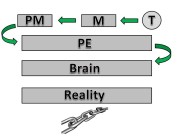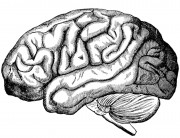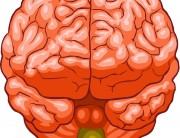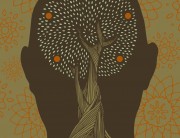This is the first in a new feature on this site. I want people to be able to get accurate and responsible answers to the questions that they have about mental health, mental illness, and psychology in general. I do not plan on answering questions based solely on opinion but on what science and experience has demonstrated. This does not mean that opinion does not play a role and that is where you come in.
Please send me your questions and I will attempt to answer them, possibly featuring them on this page. In addition, I not only welcome feedback and discussion, I’m practically begging for it. Let your voice be heard. Having said that, please be respectful of the voices of others. Abusive, offensive, or aggressive posts will not be allowed.
Question of the Day:
Q: I have generally understood the meaning of “disease” to be the invasion of our bodies by some form of invasive bacteria or virus. If this is correct, how does mental health fit in this paradigm when it is also referred to as a disease, or when alcoholism is regarded as a “disease”?
A: This is a very common question in the realm of psychology, which is often referred to as a soft science. That somewhat condescending description refers to the reality that psychological phenomena are not always as concretely observable as those in the more traditional science such as biology and chemistry. Of course, this assumes that what we are able to see through our microscopes are the end of the line in observable entities and that what appears to be a direct cause to an effect is actually so. Psychological phenomena are merely in the early stages of exploration and observation, especially within the realm of neurophysiology. Give it a few years and see how soft the science of psychology is.
This separation between the hard and soft sciences is partly to blame for the confusion and disagreement that exists around the disease notion of mental illness and mental health. In actual fact, according to dictionary.com, the definition of disease is :
“a disordered or incorrectly functioning organ, part, structure,or system of the body resulting from the effect of genetic or developmental errors, infection, poisons, nutritional deficiency or imbalance, toxicity, or unfavorable environmental factors; illness; sickness; ailment.”
Of particular note in this definition of disease is the inclusion of “unfavorable environmental factors” as a possible pathogen, or disease creating agent. In our society we have been semantically conditioned to consider pathogens to be organisms, made from chemicals both naturally occurring and synthesized. The word disease invokes images of affected tissues or infection but in actual fact, the pathogen may be as difficult to objectify as happiness or sadness.
In other words, an unhealthy social environment may lead to maladaptive development of the organ that is responsible for navigating our social environment: the brain. This is just as true as tobacco smoke affecting the organ whose job it is to process oxygen for the body: the lungs.
In a nutshell, we separate the body into two unequal halves, neck-up and neck-down, and though we would readily admit to the potential harm that a sharp blade would have on our vulnerable skin, we are reluctant to acknowledge the potential harm of a sharp word on our vulnerable cerebral cortex, especially during the developing years.
This may seem like a long answer to a question that could have been much more easily answered with a plea to the dictionary and a hollow, “It depends what you mean by disease” retort, but I think in order to refocus this long-standing debate, we need to shift the paradigm of what we mean by health and disease.
There is much science to demonstrate the impact of experience on not only the function of the brain, but its actual structure. For example, watch this video by neurodevelopment expert Dr. Allan Schore.
In conclusion, if we can get past the societal notion of what a disease is, then yes, I believe that we can lump mental illness in with every other form of physical corruption that may occur during this life, regardless of the organ or the origin.I hope this addresses the question adequately and I welcome feedback and opinions on the topic.



















































Recent Comments